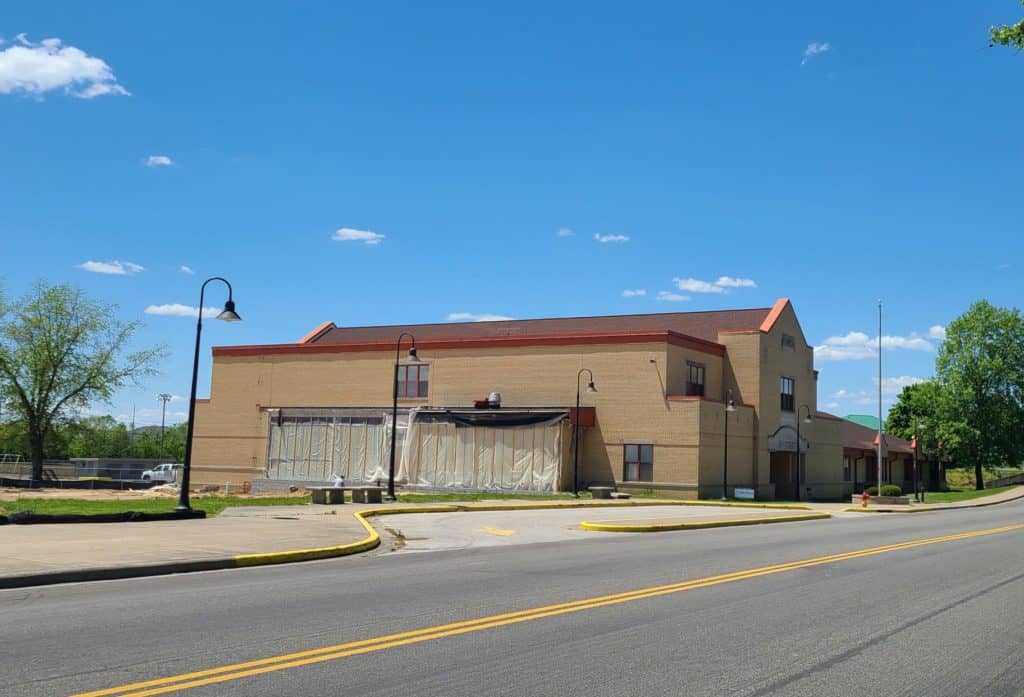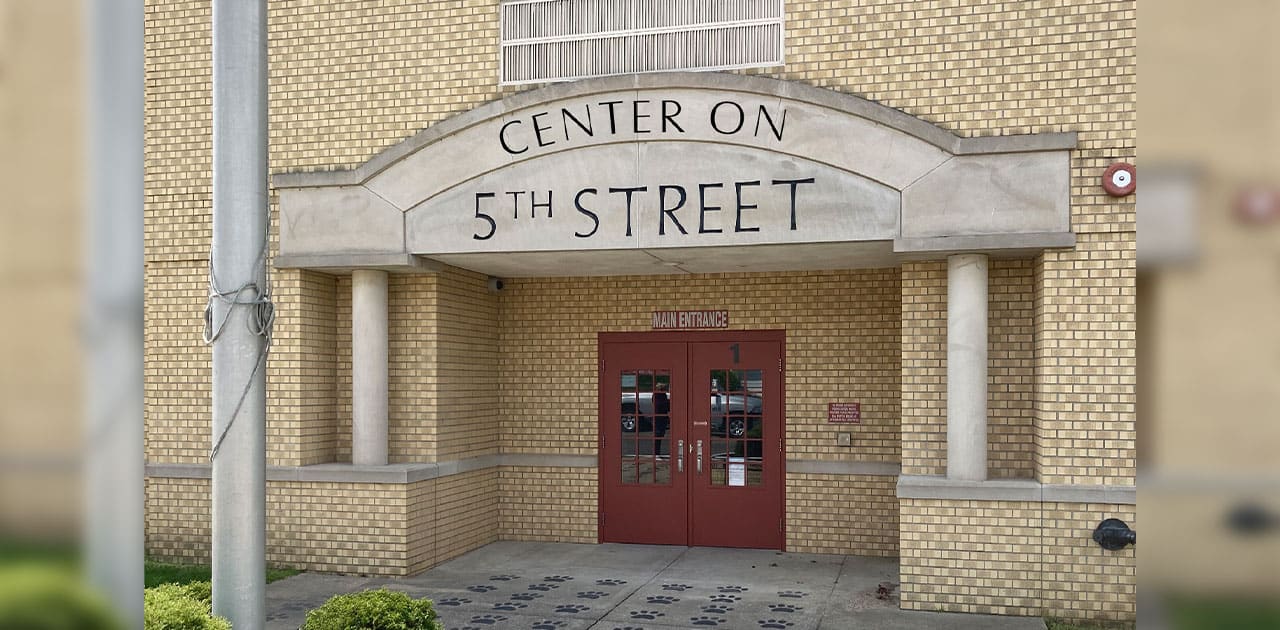Former 5th Street School is being repurposed by SWICACC to serve Dubois and six surrounding counties
On a cloudy morning last week, Tammy Lampert drove up to the front of the former 5th Street Elementary School to find a member of the community standing out front, she asked if her group could help with the landscaping for the new Resiliency Center being constructed within. “People are very passionate and want to help,” says Lampert. “There’s a lot of work to be done and we will need lots of help.
The building, formerly owned by Greater Jasper Consolidated School Corporation, was vacated last year. Flooding in the basement, the need for retrofitted heating and cooling systems, electrical and Internet upgrades, and a host of other problems there made it more cost-effective to build a new school and combine it with the district’s other older elementary school. But a wing of the former 5th Street School was built about 30 years ago and retains much more robust construction.

“We’ve been looking for three years for a bigger space,” says Lampert. Lampert is the Executive Director of the Southwestern Indiana Child Advocacy Center Coalition (SWICACC). “We’ve grown a lot and now, this building is ours.” Lampert’s quiet crusade to purchase the building has worked out well for everyone involved. The School Corporation demolished the older portion of the building with its many problems and worked through the process of selling it to SWICACC.
Now, Lampert and her team have more than just a little bit of space. They have a lot of space — enough to conduct training for law enforcement and child caseworkers, prevention training for adults in the seven-county region, space for other community partners like Mentors for Youth, and space to grow, too.
The project, dubbed the “5th Street Resiliency Center”, is a giant leap for SWICACC’s child advocacy center operations. The team has operated with four small locations and a mobile unit since starting in 2009 SWICACC’s team of forensic interviewers has never had office space or room to accommodate multi-disciplinary team members with meeting space.
“This is the first time we’ll have a place with a sign and office hours, and we’re excited about the awareness that’ll create simply by being there,” says Lampert. “We’ve been using our homes for offices — which was bittersweet during COVID — but we’ve never had a common space to gather,” she adds. Now law enforcement, caseworkers, mental and medical health professionals, investigators and detectives, children, and non-offending family members have a single space. Enough the group is constructing a training facility and mock apartment to host multiple national-level trainings.
The team is thinking big for the building, including exploring ways to offer group, art, and music therapy down the road. “For many of the kids who come to us after an allegation of abuse, they tell us their terrifying stories and sometimes it feels like we can’t do more for them after they walk out the door,” she says. “Everything we’re doing here is for the benefit of kids.”
But benefits for adults are underway, too. For many caregivers who learn their child was abused or sexually assaulted, intense mental strain lingers. Adults often struggle with a sense of guilt or blame themselves for the tragedy. “We’re providing all the resources for everyone’s healing process,” says Lampert.
The team’s “quiet phase”, as Lampert calls it, has ended now that the building is in their hands. SWICACC began soliciting donations for funds to help reconstruct walls and the interior of the building in late March. In about a month, they’ve been thrilled to find half of their $1.1 million capital campaign has been met. A significant amount of funds have come from T&S Rentals, Springs Valley Bank, The Dubois Co. Community Foundation with anonymous donors, and John and Bobby Jo Bell.
“The community’s willingness to help is almost overwhelming,” says Lampert. Like the group ready to plant flowers and do landscaping, SWICACC already has a contractor and a construction plan and is raising funds to construct walls, conduct repairs, and get the building for habitation. “This is a huge impact for our service area. They want us to be here and we want to be here, too.”

